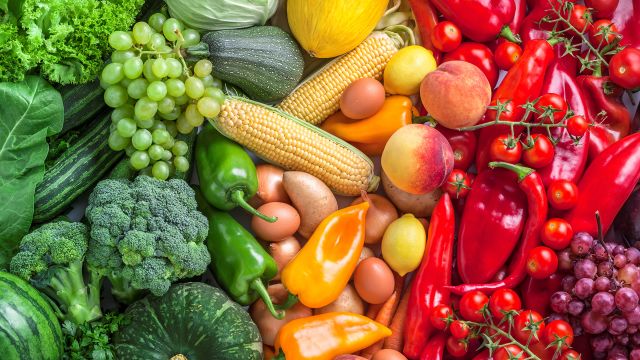Updated on July 22, 2024.
If you have multiple myeloma, whether you’re in treatment or remission, what you eat matters.
Many treatments that are common for people with multiple myeloma, including medications and stem cell treatments, call for an adjustment to eating habits. If you have anemia, weakened bones, or kidney problems, your diet can help alleviate those issues.
Making healthy eating choices during remission will also help your body feel strong and can help you feel better overall.
While there is no one-size-fits-all diet plan for people with multiple myeloma, your nutritional choices can ease treatment side effects, help with symptoms, and improve your overall health. Your healthcare provider (HCP) can recommend a nutritionist or dietitian who can help you design a plan.
Treatment can affect appetite and bowel habits
It’s very likely that your appetite will change during treatment for multiple myeloma. If you are receiving chemotherapy or radiation, nausea and a poor appetite are common.
If you feel queasy, try:
- Eating small meals more frequently
- Avoiding carbonated beverages
- Sticking with bland foods, like crackers, toast, or clear broth
- Supplementing meals with snacks
- Incorporating ginger root into your diet
- Drinking nutritional shakes in place of or in addition to meals
If you have constipation as a result of chemotherapy or other medication, make sure to stay hydrated by drinking plenty of water. You should also include fiber-rich foods—such as fruit, whole grains, and oatmeal—into your diet.
Protect yourself from infection
Multiple myeloma can raise your risk for infection, since your white blood cell count often falls. If you get a stem cell transplant as part of your multiple myeloma treatment, you’re at a particularly heightened risk. Follow strict food safety rules by avoiding undercooked or raw meat, fish, and eggs, as well as unpasteurized beverages. Make sure all fruits and vegetables are carefully washed.
Nutrition for anemia and weakened bones
Due to the disease, treatments, or kidney problems related to the disease, people with multiple myeloma frequently have anemia, or a low red blood cell count. If that’s the case for you, nutrition may help. Your body needs iron, vitamin B12, and folic acid (folate) to produce hemoglobin, the oxygen-carrying molecule in your red blood cells.
Iron-rich foods include:
- Lean meats, poultry, eggs, beans
- Shellfish, sardines, tuna, haddock, mackerel
- Dark leafy greens, sweet potatoes, peas, broccoli
- Iron-fortified foods
Good sources of B12 are fish, meat, poultry, eggs, and dairy, as well as fortified breakfast cereals and nutritional yeast. Folate is abundant in dark leafy greens, beans, fresh fruits, whole grains, liver, seafood, and eggs, as well as fortified foods. Iron or folic acid supplements may also help with anemia.
As you choose nutritious foods, avoid consuming processed meat, and keep red meat to a minimum. Both of these types of meats are associated with a higher risk of cancer, according to the National Cancer Institute.
According to a 2021 review published in Blood Cancer Journal, many people with multiple myeloma are low in vitamin D as well. To raise your vitamin D levels, you can incorporate foods into your diet like:
- Cod liver oil
- Salmon
- Sardines
- Tuna
- Fresh shiitake mushrooms
If approved by your healthcare team, vitamin D supplements can also help strengthen your bones, especially when combined with calcium, which helps with absorption of vitamin D. They will be most able to help if they’re combined with a lower-sodium diet, as salt can affect how well the body absorbs calcium.
However, before taking supplements that include calcium, you need to work with your HCP to check your calcium levels. Sometimes multiple myeloma can cause high calcium levels, called hypercalcemia. This can be a very serious condition that can lead to kidney problems. Multiple myeloma can also lead to kidney problems as a result of excess protein. Your HCP can recommend the best diet options for your kidneys, which may include reduced protein or calcium.
Always check with your HCP before taking any supplements or making major changes to your diet, since any changes you make can potentially affect your health or how well your treatment works.






